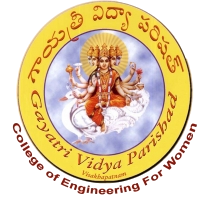2.3.1. Student centric methods, such as experiential learning, participative learning and problem solving methodologies are used for enhancing learning experiences
The strength of the college lies in the teaching-learning process. A right blend of traditional and modern methods is employed in the college which is offered to students to make learning student-centric. The methodologies such as experiential learning, participative learning and problem-solving are adopted to ensure that the vision of the college is realized. Faculty have been supporting students of different learning styles through various student-centric teaching processes:
Experiential Learning
- Experiential learning process is enabled in a laboratory to expose students to a variety of experimental settings including virtual labs
- Case studies in some courses
- Term Projects/Industrial Internships/Major Projects
- A list of final year Projects and their reports are available on LAN at http://172.16.5.78:8080/dspace
- An additional IoT Laboratory facility is set up to take up socially relevant projects that are beyond the curriculum
- Projects exhibition on regular basis and participation in Hackathons
- Videos, making use of Audio-Visual Equipment and also online platforms in the Smart Classrooms for visualizing the concepts of classroom teaching
- Students are trained by industry experts on emerging technologies
Participative Learning
Participative learning environment is created in the classroom for the students to actively interact during the lectures through
- Group discussions
- Participation in debates
- Questioning method/Quiz method
- Class seminars
- Industrial visits and internships facilitate in acquisition of necessary skills.
- Hardware expo
- Activities by professional bodies such as CSI, IETE, IEEE
- Departmental student associations and clubs
- NSS Activities
- Cultural and Sports events
Self Learning
- Students undertake Self-Learning through the content that can be accessed from the college E-Courseware available at www.gvpcew.net/moodle
- Students register for the MOOCs programs
Problem Solving
As part of the curriculum and assessment, the following methods are adopted:
- Summer internship projects, community-oriented projects
- Final year projects at the undergraduate and post graduate levels
- Seminars and tutorials
- Assignments
The college prioritizes the holistic development of the students through curricular, co-curricular and extra-curricular activities to enhance the multiple learning experience of the students.
| Additional Information |
2.3.2. Teachers use ICT enabled tools for effective teaching-learning process.
All the faculty of the college adopt ICT tools for effective content delivery in the classrooms. The institute is particular in giving the students a better understanding, reinforcement of concepts and enriching the learning experience through ICT tools. The institution has in place the necessary infrastructure to ensure that all the faculty have access and use ICT tools for better content delivery. Blended mode of learning is adopted where in the direct faculty-taught interaction, visual presentation and online learning through learning Management System is largely implemented.
The Digital library, online journals, DELNET, online material, online courses (Coursera, NPTEL, Udemy, ICT Academy), video/audio equipment, LCD projectors etc support the ICT enabled teaching-learning process.
For online teaching during the pandemic and thereafter the college faculty have accessed G-Suite, MSDN alliance, Microsoft teams, Zoom platform, Code tantra exclusive for First year are part of ICT tools of the college. In addition, Matlab, Mentor graphics and other software tools enable better learning experience for the students.
The Learning Management System of the college is an excellent ICT platform that enables the teacher to conduct online quizzes, clarify doubts online, submit online assignments, post subject material and make the content available to the students for self-paced learning.
The Wacom digital tablet, digital platforms, LCD projectors, television screens available together with LMS (moodle based) help the teachers use ICT enabled tools for effective teaching learning process.
| Additional information |
2.3.3. Ratio of mentor to students for academic and other related issues (Data for the latest completed academic year )
Response: 20:1
2.3.3.1. Number of mentors - Number of students assigned to each Mentor
Response: 73
| Year wise, number of students enrolled and full time teachers on roll |
| Circulars pertaining to assigning mentors to mentees |
| Mentor/mentee ratio |
